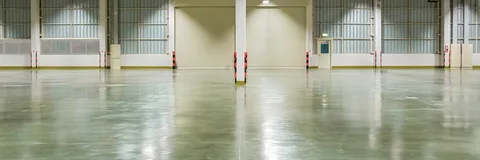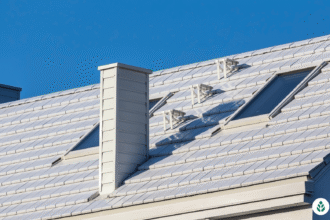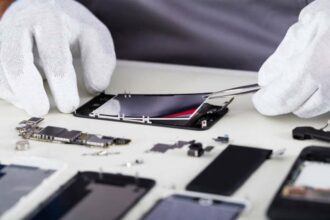Walk into any bustling warehouse, modern restaurant, or high-tech manufacturing facility, and you’ll likely notice something striking about the floors. They’re not just functional—they’re practically gleaming. That smooth, durable surface you’re admiring is probably commercial epoxy flooring, and it’s revolutionizing how businesses think about their floor investments.
- The Science Behind Superior Performance
- Real-World Applications Across Industries
- Healthcare and Pharmaceutical Facilities
- Food Processing and Commercial Kitchens
- Manufacturing and Industrial Facilities
- Cost Analysis: Beyond the Initial Investment
- Installation Considerations That Impact Success
- Customization Options for Specific Needs
- Making the Right Choice for Your Facility
- Transform Your Commercial Space Today
Commercial epoxy flooring has quietly become the go-to choice for industries ranging from healthcare to automotive. Unlike traditional flooring materials that crack under pressure, fade over time, or require constant maintenance, epoxy creates a seamless, chemical-resistant surface that can handle whatever your business throws at it.
But what makes this flooring solution so compelling for business owners? The answer lies in understanding how it transforms not just the appearance of a space, but its entire operational efficiency.
The Science Behind Superior Performance
Commercial epoxy flooring consists of a two-part system: epoxy resin and a hardening agent. When these components mix, they create a chemical reaction that forms an incredibly strong, cross-linked polymer. This process, called curing, results in a surface that’s actually stronger than the concrete beneath it.
The molecular structure of cured epoxy explains why it outperforms traditional options. While vinyl tiles can lift at the edges and ceramic can crack under heavy loads, epoxy forms a monolithic surface without joints or seams. This eliminates weak points where damage typically begins.
Temperature resistance sets commercial epoxy apart from other flooring materials. Many epoxy systems can withstand temperatures from -10°F to 140°F without degrading, making them suitable for both cold storage facilities and heated manufacturing environments.
Real-World Applications Across Industries
Healthcare and Pharmaceutical Facilities
Hospitals and pharmaceutical companies choose commercial epoxy flooring for its seamless surface that prevents bacterial growth. The non-porous nature of epoxy means contaminants can’t hide in cracks or grout lines, making sterilization more effective.
Operating rooms benefit from epoxy’s static-dissipative properties, which prevent dangerous electrical buildup around sensitive medical equipment. The slip-resistant textures available in medical-grade epoxy systems also reduce accident liability.
Food Processing and Commercial Kitchens
The food industry demands flooring that can handle frequent washdowns, temperature extremes, and aggressive cleaning chemicals. Commercial epoxy flooring systems designed for food processing include antimicrobial additives that actively inhibit bacterial growth.
These floors resist staining from oils, acids, and food dyes that would permanently damage concrete or tile. The seamless surface also meets strict USDA and FDA requirements for food safety compliance.
Manufacturing and Industrial Facilities
Heavy machinery creates unique flooring challenges. Forklifts, conveyor systems, and metal fabrication equipment can destroy traditional floors within months. Commercial epoxy flooring distributes these loads across the entire surface, preventing point-load damage.
Chemical resistance becomes critical in manufacturing environments. Specialized epoxy formulations can withstand exposure to solvents, acids, and alkalis that would eat through other flooring materials.
Cost Analysis: Beyond the Initial Investment
The true value of commercial epoxy flooring becomes apparent when calculating the total cost of ownership over time. While the upfront investment may exceed basic alternatives, the long-term savings are substantial.
Maintenance costs drop dramatically with epoxy floors. A simple dust mop and occasional wet mopping replace the intensive cleaning required for textured surfaces. The chemical resistance means harsh cleaning products won’t damage the floor, extending its lifespan.
Replacement frequency tells the real story. Quality commercial epoxy flooring can last 15-20 years in heavy-duty applications, while vinyl composite tile typically needs replacement every 7-10 years. Concrete surfaces may require resurfacing every 5-7 years due to wear and chemical damage.
Energy efficiency provides another cost advantage. The high-gloss finish of epoxy reflects up to 300% more light than bare concrete, reducing lighting costs in large facilities. This improved brightness also enhances worker safety and productivity.
Installation Considerations That Impact Success
Surface preparation determines the longevity of any commercial epoxy flooring system. Proper concrete preparation includes mechanical grinding or shot blasting to create the surface profile necessary for optimal adhesion. Shortcuts in preparation lead to premature failure and costly repairs.
Environmental conditions during installation affect curing quality. Temperature, humidity, and air circulation must stay within specified ranges throughout the installation process. Professional installers use dehumidifiers and heating systems to maintain ideal conditions regardless of the weather.
Cure time varies significantly between epoxy systems. Fast-cure options allow facilities to return to service within 24-48 hours, while standard systems may require 5-7 days for full cure. The choice depends on operational requirements and downtime tolerance.
Customization Options for Specific Needs
Commercial epoxy flooring systems offer extensive customization to meet specific operational requirements. Aggregate additives create slip-resistant surfaces for wet environments, while smooth finishes facilitate easy cleaning in sterile facilities.
Color coding serves both aesthetic and functional purposes. Different colored zones can designate traffic patterns, safety areas, or specific work zones. This visual organization improves workflow efficiency and safety compliance.
Decorative options include metallic pigments, color flakes, and even company logos embedded in the floor. These features allow businesses to reinforce branding while maintaining the functional benefits of epoxy flooring.
Making the Right Choice for Your Facility
Selecting the appropriate commercial epoxy flooring system requires careful consideration of your specific environment and requirements. Heavy traffic areas need different formulations than light-duty spaces. Chemical exposure patterns, temperature ranges, and aesthetic preferences all influence the optimal system choice.
Working with experienced commercial flooring contractors ensures proper system selection and installation. Look for contractors with specific experience in your industry who can provide references from similar facilities.
The investment in commercial epoxy flooring pays dividends through reduced maintenance, improved safety, and enhanced facility aesthetics. When properly specified and installed, these systems provide decades of reliable service while supporting your business operations.
Transform Your Commercial Space Today
Commercial epoxy flooring represents more than just a surface upgrade—it’s a strategic investment in your facility’s future. The combination of durability, chemical resistance, and low maintenance creates value that compounds over time.
Ready to explore how commercial epoxy flooring can benefit your specific application? Consult with qualified contractors who can assess your needs and recommend the optimal system for your facility’s unique requirements.

















